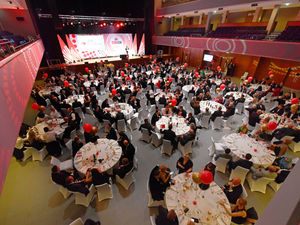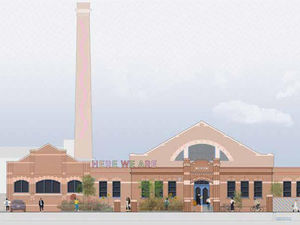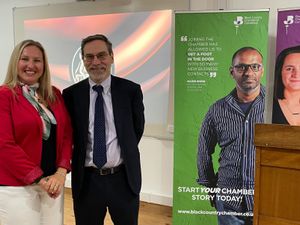Why we need to buy British at the supermarket
It was big news for the British Leafy Salads Association (yes, it really does exist), but last month's courgette and lettuce shortage was largely met with wry amusement by the general public.
"Kale Caesar!", responded one food blogger to news that iceberg lettuces were being rationed at two of Britain's leading grocery chains.
And then there was this distraught mother posting on that bastion of modern Middle England, the website Mumsnet: "My two-year old darling son will be devastated if he has no peppers or cucumbers as they're his favourite food."
The shortage, caused by heavy snow and cold weather in southern Europe, even led to a market trader in Birmingham, known only as "Dave", selling lettuces at £50 a dozen, a wheeze that Private Walker out of Dad's Army would no doubt be proud of.
But while all this might have generated a bit of mirth during the winter months, it also highlighted a wider problem which is really no laughing matter at all – our dependency on imported food.
According to Professor Tim Benton of Leeds University, just 52 per cent of the food we eat is now grown in the UK, down from a peak of 78 per cent in the early 1980s. Supermarket giant Morrisons last month pledged to redress this imbalance, saying that our over-reliance on food from abroad was putting the country at unnecessary risk from the vagaries of war and climate change. The company says it will recruit 200 extra British food suppliers in a drive towards greater self-sufficiency.
Which is music to the ears of Richard Yates, whose family has been farming at Middleton Scriven, near Bridgnorth, since 1971.
"There is no reason why British farmers can't produce all the food we need," he says. The commitment by Morrisons is also backed by Bruce Udale, who is based at Eyton, near Telford.
A recent opinion poll suggests that consumers would also support such a move, with 67 per cent saying they would preferred to buy home-produced food. But both farmers have been round long enough to know that changing the habits of the past three decades will be easier said than done.
"When we heard about the lettuce thing, us country people laughed," says Mr Udale. "Who wants to eat lettuce in the middle of the winter?
"But people do. If you go back to the 60s, if you went into a restaurant you would have chips and steak and peas, and that would be it.
"But now people travel more, and they want more pasta and bananas, they want world food, and they want it all year round.
Britain has not been fully self-sufficient since the 18th century. During the Victorian era, at the height of the Empire, Britain imported large quantities of wheat, eggs and sugar. This trend continued until the Second World War, when the country was urged to "Dig For Victory" and people started growing their own veg. However, the end of hostilities and, more pertinently, the end of rationing, saw demand for imported food rising again during the 1950s and 60s.
Developments in technology and European subsidies saw the situation improve, but demand for imports increased again during the boom of the late 1980s.
British exports are actually quite healthy, at £18 billion a year, but the problem is we are importing more than double that, accounting for £39 billion each year, says Prof Benton.
"The UK has seen a decline in the indigenous produce grown here, with orchards, for example, now accounting for 25,100 hectares compared to 113,000 50 years ago," he says.
"Production of cauliflower, broccoli, brussels sprouts, peas, parsnips, cabbage, lettuce, tomatoes, cucumber, rhubarb has decreased."
We still produce 80 per cent of our own meat, eggs and dairy products, but only 23 per cent of our fruit and vegetables are sourced from the UK.
Prof Benton adds: "The UK can never be entirely self-sufficient, but buying more food locally will increase our resilience to these risks."
Mr Yates, who had supported remaining in the EU before last year's referendum, says the Leave vote has created a lot of uncertainty in the industry. But he says Brexit also presents British farming with a golden opportunity – if the Government plays its role.
"Brexit is a great opportunity for the Government to get behind British farmers," he says.
"They will no longer be bound by EU law, they can back British farmers 100 per cent by buying British food for our hospitals, prisons, and schools," he says.
"It will save on food miles, and will be good for the environment."
Jeremy Lowe, Staffordshire adviser to the National Farmers' Union, points out that farming is the bedrock of the largest manufacturing sector in the UK, with the British food and drink industry worth £108 billion to the economy, and providing jobs for 3.9 million people.
He agrees with Mr Yates that Brexit provides an opportunity for Britain to move towards self-sufficiency.
“For every £1 invested in British farms, farming delivers £7.40 back to the economy," says Mr Lowe.
“With Brexit we have a unique and historic opportunity to influence a policy that could ensure British farming, the nation’s food production and the iconic British countryside thrives, not just survives."
But Mr Lowe says farmers and other areas of the food supply chain will need to work more closely together if they are serious about taking on cut-price imports.
His counterpart in Shropshire, Jonathan Evans, says the country's ability to feed itself is an important measure of how it is doing.
"Self-sufficiency is an important yardstick for measuring how competitive we are and how much we produce, and doesn’t mean limiting or reducing exports," he says.
“Shropshire farmers and growers are proud to produce quality, tasty and affordable food, while looking after the environment and adhering to world-class welfare standards.
“We know that 85 per cent of the public have said they want to see more British food on the shelves and there is a real opportunity to get more British food on their plates.
“The NFU is lobbying to help boost the productive potential of farming, stimulating investment and ensuring that the drive to increase British food production is at the heart of every government department."
Former environment secretary Owen Paterson has also called for Britain's public sector to adopt a "Buy British" policy when we leave the EU.
The NFU says both Shropshire and Staffordshire councils have good track records in supporting their local farm industries, but more can still be done in our hospitals, schools and other public services.
However, Mr Udale says Britain will only be able to return to the days when more than three-quarters of our food is home-grown if there is a change of attitude among consumers about what they eat and when.
"People have become used to eating strawberries in January, even if that means they are being flown from California," he says.
"The customer is always right, and we will always try to give the customer what they want, but I think we would be better off if we went back to eating things when they are in season.
"We won't be able to get back to producing 80 per cent of what we eat unless the public accepts that, and that would mean a bit of education. But I do think we might begin to see the pendulum swinging the other way."





